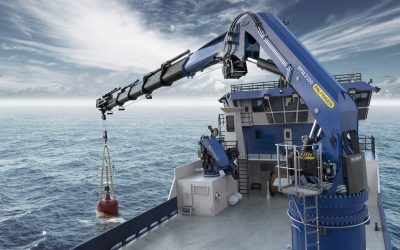The Naval Architect: May 2020
The Seafarers International Research Centre (SIRC) at Cardiff University is nearing the end of a research project, begun in 2018, investigating the onboard living and working conditions for seafarers. The SIRC’s findings are based on two studies conducted by researchers with seafarers in China, the Philippines and the UK.
Surveying around 1,500 individuals in each study, the first was carried out in 2011 and the second in 2016, before and after the Maritime Labour Convention 2006 (MLC) came into effect, respectively. These were followed up with face-to-face consultations with accommodation engineers and naval architects at shipyards in Japan, China and Korea.
While many areas were found to have seen clear improvements, one area they found to have seen relatively little improvement was in the quality of the accommodation and amenities provided for seafarers while on board. Based on their findings, the SIRC researchers have drawn up a set of recommendations for use by shipowners in outfitting newbuilds in a way that builds on the standards set out in the MLC to improve seafarers’ conditions.
Presenting at The Royal Institution of Naval Architects’ Human Factors conference in late February this year, SIRC research associate Iris Acejo detailed the researchers’ recommendations, which focus on incorporating the human element into accommodation design, thereby improving seafarers’ quality of life and ability to carry out their duties. The recommendations can be grouped into the following areas:
- Improvements to cabin design to maximise storage space;
- Reductions in noise and vibration in cabins;
- Incorporation of more controls (ie, light and temperature) within cabins;
- Increased access to natural light on board;
- Improvements to leisure facilities.
Many of the ideas brought forward by the SIRC research are suggested in the MLC itself, albeit largely in the form of non-mandatory guidelines outlined in the Part B sections of the Convention, intended to be given ‘due consideration’ by shipowners and operators, rather than in the more strictly regulated Part A. In general, the researchers’ recommendations – intended as supplementary to the MLC minimum standards – offer more specificity about what may be useful in seafarer accommodation, suggesting, for instance, that cabins contain “a minimum of four coat hooks”, as opposed to the MLC’s “sufficient coat hooks”.
While many of the recommendations are in this relatively modest vein, focusing on encouraging shipowners to be more efficient with the use of furnishings and storage space, there are also suggestions for altering the construction of the cabins themselves to improve seafarer comfort. Regarding minimising the transmission of structural noise into cabins, the researchers say that noise reduction cabin systems should be fitted as standard to all cabins, incorporating insulated double walls, insulated window boxes designed to prevent the transfer of structural noise, floating floors incorporating a noise damping material beneath the steel surface.
There are also suggestions for improving the recreational facilities available to seafarers, including recommendations for the inclusion of an indoor swimming pool, basketball court or full-size squash court and a purpose-built gymnasium on all vessels engaged in international trade.
Originally planned to be published in the first quarter of the year, the SIRC has, in light of the ongoing COVID-19 pandemic, postponed the release of the recommendations until such time as owners, operators and builders are in a better position to give the work due consideration. That said, the researchers’ ultimate intentions for their set of recommendations, once made available, are unchanged. Acejo says: “The findings will be disseminated to regulators, class societies, shipowners and to stakeholders such as the International Transport Federation and the Nautical Institute. Naval architects and shipbuilders will also be contacted in an effort to achieve a paradigm shift in relation to what is seen as the minimum acceptable standard for accommodation or good practice in the area.”
The SIRC’s research can be viewed online at: www.sirc.cf.ac.uk




